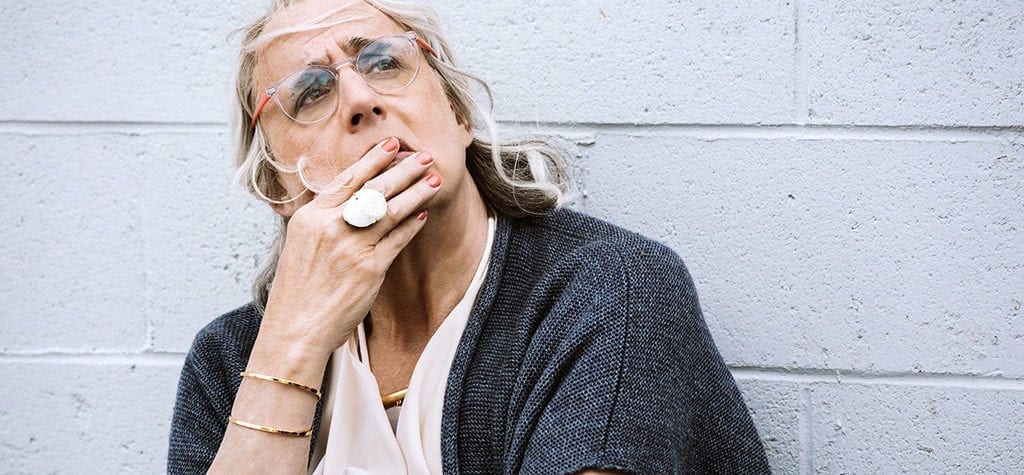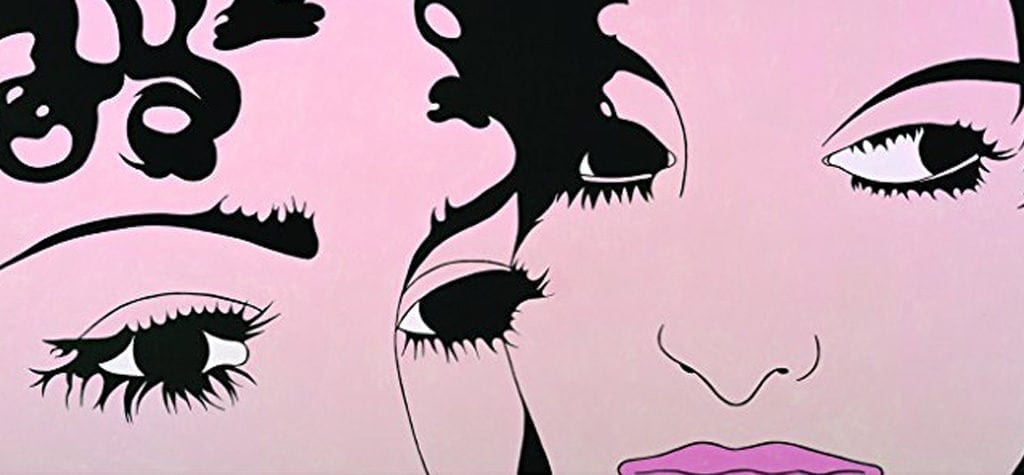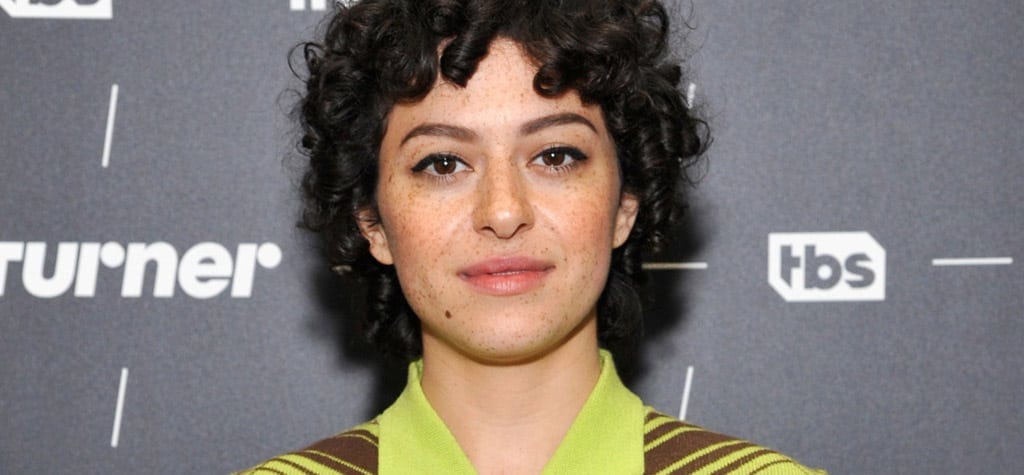
Why Alia Shawkat is entertainment’s renaissance woman
With season five of Arrested Development having wrapped on Netflix, we finally got to see what was going down with the Bluths all these years – and let’s just say they were as hopeless as ever. Although we were stoked the Mitchell Hurwitz-created comedy is back, to say it’s been a rocky road would be an understatement.
Amid cast members apologizing to Jessica Walter for downplaying the verbal abuse she suffered on set, cancelled UK press tours, and most significantly the sexual misconduct allegations made against Jeffrey Tambor on the set of Transparent and his subsequent return to Arrested Development, the show has been mired in even more controversy than we could have imagined.
One person who’s evidently tired of such major issues being brushed under the carpet is Alia Shawkat, who became the first Arrested Development cast member to comment on the sexual assault allegations made against Tambor.

Voicing her support for the women who accused the Transparent actor, Shawkat told IndieWire, “I was surprised, obviously. I’ve known him since I was very young.” The actor has worked with Tambor on the set of Arrested Development where she plays Lindsay & Tobias Funke’s daughter Maeby and also on Transparent as Lila, a woman Sarah (Amy Landecker) picks up after recognizing her at a sex addicts meeting.
Putting her personal feelings towards Tambor aside, Shawkat added, “I support the voices of the victims though, whatever they said.”
Showing she’s as fearless as her work suggests, Shawkat has become somewhat of a powerhouse over the years for LGBTQI representation, the #MeToo movement, and for female artists, filmmakers, and writers in the entertainment industry. That’s apparent in the work the actor and screenwriter does on the screen as well as off it too.

Shawkat’s radical honesty can be seen through her recent writing debut for Duck Butter, which she co-wrote with director Miguel Arteta (Youth in Revolt).
Premiering at last year’s Tribeca Film Festival and earning shining reviews, the film is about two women (Shawkat’s Naima and Laia Costa’s Sergio) who are dissatisfied with the dishonesty they see in dating and relationships and make a pact to spend 24 hours having sex every hour on the hour, hoping to find a new way to create intimacy.
What makes this film special is the way it presents a gay relationship in a mundane way that queer love stories are so rarely allowed to be. Per The Daily Beast, “It’s about women who have sex with women, but it stays well clear of the tropes of the genre, like emotional coming out monologues and well-lit, sensual sex scenes that quickly fade to black.”

Shawkat highlighted the significance of steering clear of the cliches present in the storylines of many lesbian films.
“This is not a story about when (Sergio and Naima) realized they were gay, how many men they had slept with before, what happened, or how their parents reacted to them being gay . . . this was about two people who are in that stage where they’re like, I know myself well enough to be super intimate right away, but I don’t know myself enough to consistently be honest with that.”
Instead of focusing on the gay narrative, Duck Butter allows the characters to embark on this journey without their queerness defining them.

With a film so heavily focused on sex, such scenes are notable for being intimate and realistic. Shawkat credits a lack of focus on the male gaze, citing Blue Is the Warmest Color – a film that she said is “beautiful” but also an example of what not to do when depicting sapphic sex:
I’ve been lucky that all the sex scenes and nudity things that I’ve done have always been positive experiences, but from what I’ve heard and usually seen in a lot of work is that you can tell this woman is being looked at as this object of desire. I was like, there has to be a shot of me getting a beer out of the fridge with my top off. We have to desexualize nudity.
Instead of the overtly sensual sex scenes or the gratuitously pornographic, Duck Butter presents the reality of sex with shots that are playful and authentic.

Previous to Duck Butter, Shawkat has played a handful of queer characters during her 19-year acting career, as Lola in The Intervention, Laura in Me Him Her, Dalia in May in the Summer, and who can forget her role as Ilana’s doppelganger and love interest Adele in Broad City? “In the community, in the LGBTQI community, especially now they’re naturally telling more honest stories,” Alia told GoMag.
“Once you start accepting it, telling normal stories from those perspectives — normal meaning it’s not commenting on the fact that they’re black or that they’re gay or whatever — that’s when I think the real effect comes in for an artist.”
With the success of Duck Butter, Shawkat’s definitely having her moment in the spotlight and using this to great effect, unafraid to speak out about the issues facing the industry today. In addition to queer representation, the actor has also made strides in the comedic world with the hilariously dark millennial satire Search Party.

The TBS show created by Sarah-Violet Bliss, Charles Rogers, and Michael Showalter launched in 2016, telling the story of four self-absorbed twenty-somethings who become entangled in an ominous mystery when a former college acquaintance suddenly disappears, making it an existentialist noir on the millennial experience.
As someone with a vapid group of self-obsessed friends, Shawkat’s Dory is stuck in a rut with a dead end job and decides to turn her focus to actively searching for her missing friend, Chantal. Shawkat explained how her character and the show acts as a deeper comment on the millennial experience than other similar shows seem to provide:
She’s kind of apathetic — which is slightly a comment on 20-somethings in this generation, you know. It has a different tone than just being like ‘gentrification and hipsters.’ It’s more like how much are we actually doing to support our own visions? What do you want to do? Everyone has value.

Shawkat went on to say that many of her recent roles have provided her with the change to do “very different things” than what she’s been able to before. As such, she’s gone from a young teen whose catchphrase “Marry Me!” had us all chuckling in delight to playing rich, complex characters that represent the modern experience while breaking the stereotypes often perpetuated on screen.
And now that her writing debut is out there and bagging awards, it only solidifies her impact on the industry even more and begs the question of what she’s got in store for the future. In her interview with The Daily Beast Shawkat revealed, “There are two big ideas in my mind that I want to write and direct in the next coming years.”
With the success of Duck Butter and her outspoken & fearless stance on topical issues off screen, will Shawkat continue her rise as the fearless actor and writer of our generation? We think the answer is more than Maeby.



